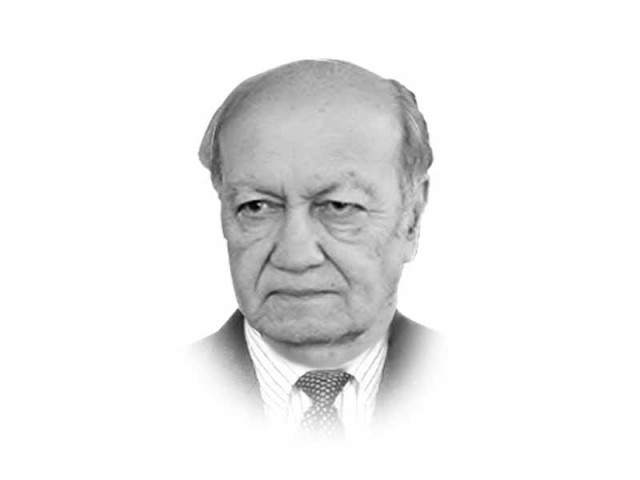Beyond Chicago
From now till end of 2014, is a narrow window to work with Nato, US, develop strategy, protect our national interests.

But several questions come to mind as Nato and US forces withdraw. What is the likely scenario that will emerge once Nato and the US withdraw? Can the Afghan forces hold up to the Taliban onslaught and are there any chances of a negotiated settlement? What role, if any, should Pakistan play to facilitate an orderly withdrawal?
The prognosis is that once the US forces leave, Afghanistan could lapse into civil strife because though the Afghan National Army has come a long way, it has yet to gel into an effective national force to counter the Taliban and warlords opposed to the government. Moreover, President Hamid Karzai’s government has not been able to win the confidence of the people due to pervasive corruption, poor governance and failing security. Capitalising on these weaknesses, Afghan Taliban enjoy local support, at least, in the eastern and southern parts of the country.
Pakistan faces a huge dilemma. Immediately after 9/11, president George W Bush addressed Pakistan in his famous remarks “either you are with us or against us”. General Pervez Musharraf took no time to be on the side of the US and to become a frontline state. For if we had not allied ourselves with the US and Nato, India would have played the key role in Afghanistan and extended maximum facilities for transit and enhanced its regional influence. Paradoxically, since then, Pakistan has been an ally of the US but also sided with forces against the US.
On the one hand, it supports the US in its policies in Afghanistan, but it can also not ignore the Taliban with whom it has maintained functional, if not friendly, relations. Further, Washington itself has been engaging the Taliban leadership, albeit not with much success. These conflicting demands make Pakistan — in the eyes of the US and Nato countries — an unreliable partner and part of the problem rather than the solution.
The irony is that the military leadership now realises the inherent dangers for Pakistan in an allout victory of the Taliban in Afghanistan. It will inspire the Tehreek-e-Taliban Pakistan (TTP) to intensify their insurgency and it is also possible that the Afghan Taliban may turn their sights on Pakistan — the strategic depth in reverse.
The question, then, is, how are Pakistan’s interests best served in this complex situation? The ideal approach would be to leave it to the Afghans to decide in an ‘Afghan-led, Afghan-owned process’, but that does not seem feasible in the current scenario. Islamabad finds itself trapped and is unable to navigate the political and diplomatic conundrum. The period from now until the end of 2014, however, provides a narrow window of opportunity to work with Nato and the US to develop a shared strategy that protects our national interests.
But a major impediment lies in taking this course. If India remains the main enemy in Pakistan’s security paradigm, Islamabad will continue the policy of co-opting militants, including the Afghan Taliban. By pursuing the same old policy of looking at every security problem through the Indian prism — while facing declining resources, internal turmoil and international isolation — it will result in increased reliance of Pakistan on militant proxies.
We are at the cusp of a situation where the moment of truth has arrived. This moment requires that we decide how the interests of our country can best be served. The militants with their pseudo religious-militaristic ideology and resources, generated through illegal means, continue to gain strength while the state is weakening. Any further indecisiveness on the government’s part and military leadership on how to deal with the Afghan, the TTP and other militant groups will only worsen the present situation.
Published in The Express Tribune, May 22nd, 2012.
















COMMENTS
Comments are moderated and generally will be posted if they are on-topic and not abusive.
For more information, please see our Comments FAQ